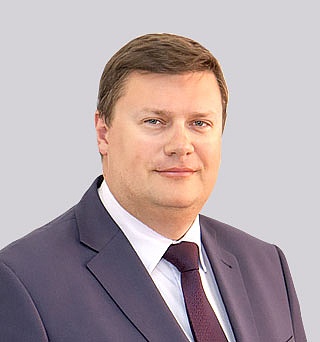Tax measures to support businesses during СOVID-19 pandemic
1 May 2020Introduction
The COVID-19 pandemic and the measures taken to combat it will have a significant impact on both the global and Russian economies. The government has taken a number of measures to stop the spread of the virus, such as suspending the activities of most Russian businesses, including service providers, from 27 March until 30 April 2020. As such, the government has also had to adopt a comprehensive support programme for affected businesses, which is currently being implemented by the Russian authorities.
Affected industries
Most of the government measures aim to support the industries recognised as being the most affected by the COVID-19 crisis. According to a government decision, these industries include:
- passenger and freight air and land transport;
- public bus services;
- culture, art and leisure activities;
- fitness and sports activities, including the operation of health resorts;
- travel and hotel businesses;
- catering services;
- additional education for children and adults;
- childcare services;
- the organisation of conferences and exhibitions; and
- consumer services (eg, hairdressing, dry cleaning and computer and appliance repair services).
Benefits and exemptions
The following benefits and exemptions have been established for companies in the above industries:
- The deadlines for paying corporate income tax for 2019 and advance payments for the first and second quarters of 2020 have been postponed for six months (excluding value added tax (VAT) and individual income tax paid through a tax agent).
- The deadlines for advance payments of transport, corporate property and land tax for the first quarter of 2020 have been extended until 30 October 2020. Similarly, the deadlines for advance payments of such taxes for the second quarter of 2020 have been extended until 30 December 2020.
- Additional grounds for obtaining a tax deferral (excluding for mineral extraction tax and excise taxes) have been introduced for organisations which did not suffer a loss in 2019 and whose revenue from the sale of goods, works or services fell by more than 10% in 2020. In such cases, a tax deferral will be granted for three months to one year (depending on the reduction in income or revenue) against collateral in the form of a pledge of real estate, a surety or a bank guarantee.
- Special conditions for granting a tax deferral have been introduced for:
- entities in the highest tax bracket;
- strategic system or city-forming organisations; and
- organisations that sell socially significant goods and services.
Additional exemptions for SMEs
Taxpayers which classify as small or medium-sized enterprises (SMEs) under the state criteria(1) have also been granted the following additional exemptions:
- All initiated tax audits and currency legislation checks have been suspended. Decisions on new audits and checks will not be made until 31 May 2020.
- A moratorium on fines for the late submission of documents to the tax authorities has been introduced until 31 May 2020.
- Measures to collect tax debt (eg, seizure of property, direct debit of funds from accounts and account blocking) have been suspended until 1 May 2020.
- The tax authorities will not file for bankruptcy on behalf of taxpayers which meet the formal insolvency criteria for the next six months.
- The filing deadlines for VAT and insurance contribution returns have been extended until 15 May 2020 and the filing deadlines for other reports have been extended by three months.
Comment
The above measures are only the beginning of a large-scale support programme for Russian businesses which will be implemented in the near future. For example, measures to extend the deadlines for filing reports and paying additional taxes to those discussed above are currently under discussion.
Endnotes
(1) A taxpayer will qualify as an SME if:
- it employs no more than 250 people;
- its capital share in a state or non-profit organisation is no more than 25%; and
- its annual income is no more than Rb2 billion.
To access this website, we request that you read and accept the Terms of Use.










